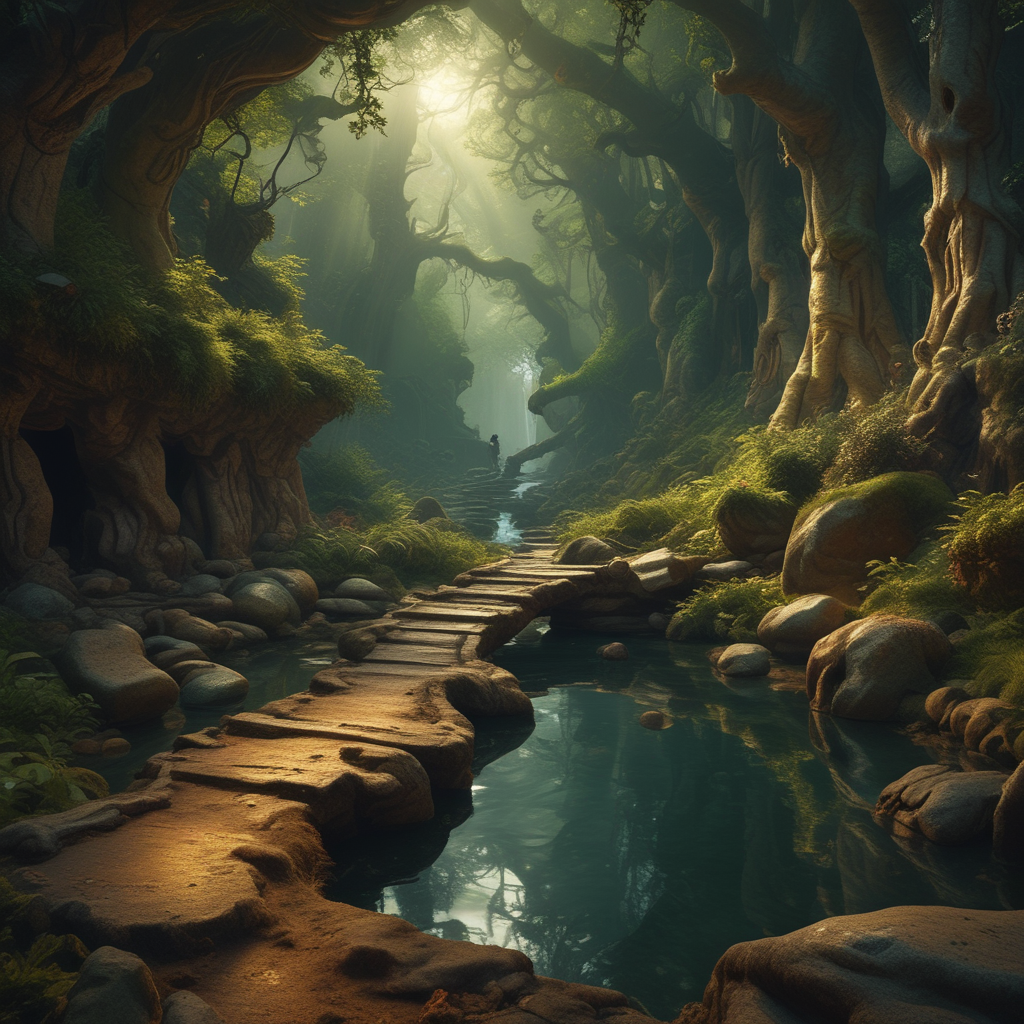The Battle for Immortality: Legendary Conflicts in Myth
I. Introduction to Immortality in Mythology
Immortality has captivated human imagination across cultures and epochs. In mythology, it often represents the ultimate human aspiration, the desire to transcend the limitations of mortality. Different cultures define immortality in various ways, ranging from the eternal life of deities to the elusive quest of mortals striving for everlasting existence.
The significance of immortality in human consciousness is profound. It speaks to our fears, hopes, and the universal longing to be remembered. Legendary conflicts surrounding immortality often explore the tensions between life and death, the essence of existence, and the moral implications of seeking eternal life.
This article delves into legendary conflicts related to immortality, examining how different cultures narrate their struggles against death and the implications of such quests.
II. The Quest for Immortality: Common Themes Across Cultures
The pursuit of eternal life is a recurring theme in myths from around the world. Some common themes include:
- The desire for eternal life in ancient civilizations: Many ancient cultures worshipped gods who were immortal and sought to emulate them.
- Myths of gods and goddesses seeking immortality: Deities often engage in quests to gain or maintain their immortal status.
- Mortal heroes and their pursuit of eternal existence: Humans frequently embark on journeys to discover the secrets of immortality, reflecting their innermost desires.
III. The Epic of Gilgamesh: The First Recorded Battle Against Death
The Epic of Gilgamesh is one of the oldest literary works, originating from ancient Mesopotamia. It tells the story of Gilgamesh, a demigod king, who embarks on a quest for immortality after the death of his close friend, Enkidu.
Gilgamesh’s quest is marked by encounters with various figures, including Utnapishtim, who holds the secret to eternal life. This journey represents the human struggle against the inevitability of death and the desire to leave a legacy. Ultimately, Gilgamesh learns that immortality is reserved for the gods, and he must instead embrace his mortality and the impact of his leadership.
The role of Enkidu is crucial, as his death catalyzes Gilgamesh’s journey. It serves as a poignant reminder of the fragility of life and the profound grief that accompanies loss, further emphasizing the themes of mortality and the quest for eternal existence.
IV. Greek Mythology: The Struggle of Heroes and Deities
In Greek mythology, the theme of immortality is woven into the narratives of gods and heroes. Key stories include:
- Prometheus and the gift of fire: Prometheus defied the gods to bring fire to humanity, symbolizing knowledge and enlightenment, yet he was punished with eternal suffering.
- Achilles and the choice between a short glorious life and eternal fame: Achilles faced a choice between a long, uneventful life or a brief life filled with glory, highlighting the tension between mortality and the desire for lasting renown.
- The tale of Tithonus and the curse of eternal life without youth: Tithonus was granted immortality but not eternal youth, illustrating the dangers of a life that drags on without the vitality of youth.
V. The Norse Myths: Ragnarök and the Fate of the Gods
Norse mythology presents a unique perspective on immortality. The gods are not entirely immortal; they are subject to fate, which is epitomized in the prophecies of Ragnarök, the cataclysmic battle that leads to the death of many gods.
This cycle of destruction and rebirth reflects the Norse belief in the impermanence of existence. The gods, while powerful, are not exempt from death, emphasizing a cyclical understanding of life. Immortality, in this context, is not about avoiding death but rather about embracing the cycles of existence and the inevitability of change.
VI. Eastern Perspectives: Hinduism and Buddhism’s Views on Immortality
Eastern philosophies offer profound insights into the concept of immortality. In Hinduism, the idea of moksha represents liberation from the cycle of birth and death, achieving an eternal existence beyond physical form.
Buddhism, on the other hand, speaks of samsara, the continuous cycle of rebirth. The quest for enlightenment is paramount, as it leads to Nirvana, a state free from suffering and the cycle of rebirth.
Legendary figures such as Ashvatthama, who is said to be cursed with immortality, underscore the implications of eternal life. His story illustrates that immortality can be a burden, filled with suffering and loss, rather than a blessing.
VII. The Role of Mortality in Shaping Myths
The inevitability of death serves as a powerful catalyst in shaping legendary narratives. Key insights include:
- How the inevitability of death influences legendary narratives: Myths often revolve around the consequences of seeking immortality and the lessons learned from those endeavors.
- Lessons learned from conflicts over immortality: Many myths teach that acceptance of mortality can lead to a richer understanding of life.
- The duality of life and death in mythological storytelling: The balance between life and death is a central theme, highlighting the importance of both in the human experience.
VIII. Modern Interpretations of Immortality Myths
Ancient myths about immortality continue to influence contemporary literature and media. Modern interpretations often reflect societal values and fears regarding death and the desire for eternal life.
In pop culture, themes of immortality are prevalent in various forms, including:
- Literature: Novels and stories frequently explore the implications of immortality, often depicting characters grappling with the weight of eternal existence.
- Movies and TV shows: Many narratives center around vampires, immortals, and the consequences of living forever, questioning the value of life.
- Philosophical discussions: Contemporary discussions around immortality raise ethical questions about life extension technologies and their implications for society.
IX. The Psychological and Societal Implications of the Battle for Immortality
The myths surrounding immortality have profound psychological and societal implications. They influence human behavior by:
- Encouraging a deeper understanding of life: The contemplation of mortality can lead to more meaningful and fulfilling lives.
- Shaping societal values: Societies often idolize the pursuit of longevity and health, reflecting a cultural obsession with youth and immortality.
In conclusion, the battle for immortality is a timeless theme that resonates deeply within human consciousness. Through mythology, various cultures explore the complexities of life, death, and the eternal quest to transcend the human condition.



